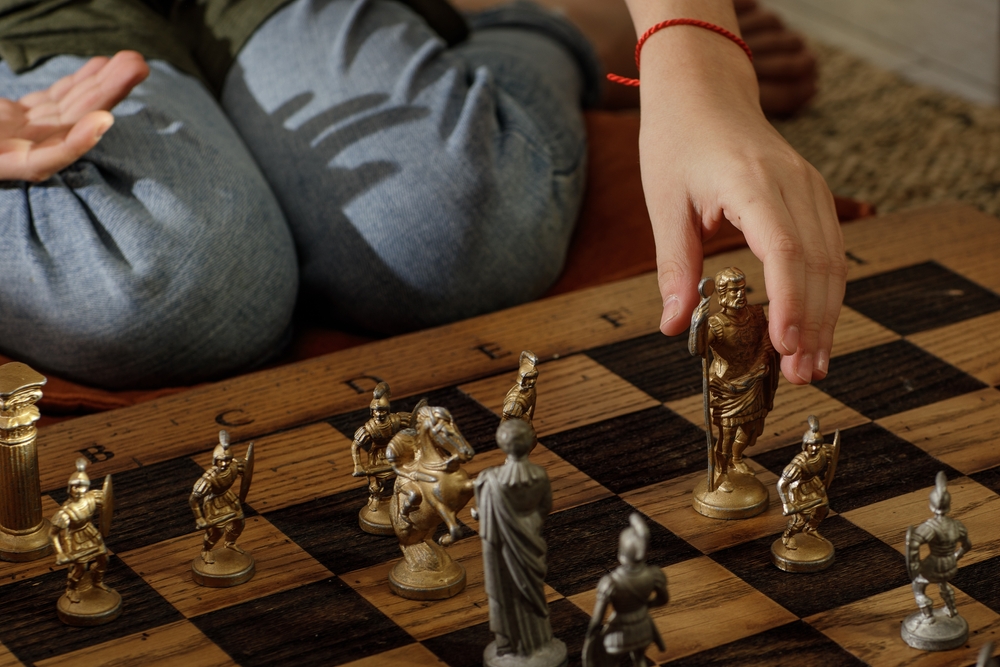The rapid pace of contemporary life requires the ability to make decisions effectively. If you’re in a situation that requires quick thinking, such as an on-the-job challenge, a personal dilemma, or an unforeseen event, your ability to think quickly can have a great impact on the results of these events. While some individuals appear to have a built-in advantage when it comes to making quick judgements, decision speed is still something that can be worked on and improved upon with the right intentions and methodology.
Cultivate Mental Agility: The basic trait required for fast decision-making is flexibility of mind. This should happen as a result of encouraging and challenging yourself to manipulate yourself in unfolding circumstances. A person can train towards developing mental agility through the use of puzzles, brain teasers, and games that require strategizing ahead, such as chess and Sudoku, which will put a person in gear for quick decision-making.

Develop a Decision-Making Framework: Although in the moment decisions may seem like they each came out of nowhere, a rudimentary framework for making decisions of any kind would suffice and provide a base amount of structure and information when all else is uncertain. Become familiar with decision-making models such as the PROACT model (problems, options, consequences, etc.) so they may assist in organising your list of not only thoughts but also considerations facing a dilemma for choosing any particular path.
Practice Mindfulness: Deep breathing exercises and meditation techniques are mindfulness practices that can bring you inner peace, steer a clear line of thought, and enable you to remain in the moment. Being mindful helps you identify your thoughts and feelings from their state of consciousness, making it possible for you to decide on something with a clear picture that is devoid of impulsiveness.
Embrace Failure as Learning: Remain aware that not all sudden decisions will result in the sweetest of outcomes, and that is fine. Rather than see failure as a limitation, see it as a chance for improvement and advancement. Analyse past decisions that turned out good and bad to see patterns, understand the process by which you made your decisions, and improve on how you would respond on a different occasion.
Seek Diverse Perspectives: When facing ad hoc decision-making, it is always better to be deliberate about the viewpoints or ideas involved before one undertakes any action. Be friends with people from different fields of work, such as coaches, colleagues, and even mentors, who will give varied views of life. Action-focused conversations and soliciting inquiries can aid you in gaining a further understanding of the situation and investigating blind spots.
Trust Your Intuition: To have all the data and analysis in good order is definitely useful, but your instinct can be of help too, especially right now. Be attuned to your intuition by listening carefully for inner messages and signals. With time, what will transform is that your intuition for decisions will become more heightened and alert to guide those impulsive processes of judgement.
Practice Decisiveness: Undoubtedly, just as in every other skill in life, this one too improves with time honed through regular practice. Task yourself with starting off making quick decisions with easier choices without thinking much out of the ordinary to make you more confident and strengthen your decision-making muscle. Until you are used to making rapid decisions, it certainly will not seem comfortable when handling high-pressure situations.
Stay Informed and Prepared: What is true power in a ‘hit-and-run’ situation? Knowledge informs that! Never lose contact with industry trends, events, and new innovations in your field to prepare yourself for the possible challenges and benefits that may arise. Moreover, be proactive and develop the habit of readiness by having contingency plans prepared for any possible situation that may arise where one can act decisively.

Moving towards the end, strengthening your skill of making immediate decisions requires mental adeptness and awareness in addition to preparation, practice, and training. If you begin to practice techniques of clarity, decision-making, courage, and resiliency daily in your life, then the day when you need to engage difficult concepts will be met with calmness and resolve. But these decisions that you make every day relate not only to what was done here and now but also to the mindset and skill set chosen as part of your long journey from being a student to an educated professional.
